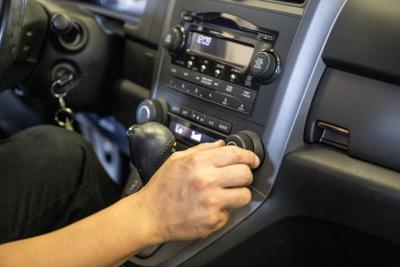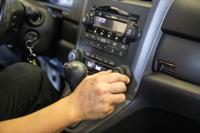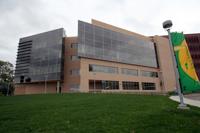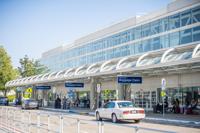
The Cool Air Rebate (CAR) Program, initially launched as a pilot in Fresno, is now available statewide. It’s designed to help low-income Californians cover the cost of repairing leaking vehicle air conditioning systems that use R-134a refrigerant, a potent greenhouse gas.
A collaborative initiative between the nonprofit Car Care Council and the California Air Resources Board, the program covers vehicles manufactured between 1993 and 2019, as well as older models that have been retrofitted to use R-134a.
It's “a health and safety thing for a lot of folks, the elderly, senior population, those with health issues, driving around in a hot car in the summer presents a risk and a danger to a lot of people. So it goes beyond comfort, and it really is affecting the safety and the health of a lot of people,” said Nathan Perrine, executive director of the Car Care Council in conversation with CALÓ News.
Exposure to high heat can have a negative effect on the body. According to the World Health Organization (WHO), “heat is an important environmental and occupational health hazard. Heat stress is the leading cause of weather-related deaths and can exacerbate underlying illnesses including cardiovascular disease, diabetes, mental health, asthma and can increase the risk of accidents and transmission of some infectious diseases.” In extreme situations, it can cause heat stroke “a medical emergency with a high-case fatality rate.”
California’s Inland Empire ranks among the ten hottest regions in the U.S., with temperatures soaring as high as 118 degrees in Riverside County, according to AccuWeather. Los Angeles and other cities across the state are also facing similar record-breaking heat.
The application process
To qualify, applicants must reside in California and meet specific income requirements. For a single-person household, the monthly income must not exceed $2,934.38. For a two-person household, the limit is $3,965.62. A full income eligibility chart, detailing both monthly and annual limits, is available on the program’s website in both English and Spanish.
It's recommended to verify if your vehicle uses R-134a refrigerant ahead of time.
The first step to determine eligibility begins online. By selecting the “See if you pre-qualify” option on the program’s website, users are guided through a short questionnaire. If the vehicle meets the program criteria, applicants are then asked to complete a full application and submit documentation, including proof of income. Those already enrolled in state assistance programs such as Medi-Cal, CalFresh, CalWORKs or California Healthy Families are automatically considered pre-qualified, streamlining the process for many low-income individuals.
For those who cannot apply online, they can download a printable version from the website and mail it to: 901 H Street, Suite 120, PMB 1049 Sacramento, CA 95814, or email it to: info@coolairrebate.org.
If the participant qualifies for the rebate program, they will receive a confirmation letter. To move forward, they must take the letter along with their vehicle to one of the participating auto repair shops across the state, where technicians will inspect the air conditioning system for leaks. If the repair is deemed eligible, the program will cover 90% of the cost up to a maximum of $1,500. The remaining 10% will be the participant’s responsibility.
Before taking the car to the shop, it’s essential to consider that “If the diagnosis results in qualifying repairs and the consumer accepts the repairs, the program pays participating repair shop 100% of the diagnostic fee. If the diagnosis results in non-qualifying repairs or the consumer declines the repairs, [the] program pays participating repair shop 90% of the diagnostic fee,” as indicated on the initiative website. People must be prepared to pay the remaining 10% of the diagnostic fee if applicable.
Executive director Perrine acknowledged that even with the program covering up to 90% of eligible repair costs, the remaining 10% can still pose a challenge for families with especially tight budgets. While the program will generally maintain that cost-sharing structure, he indicates that some flexibility is built in. “If a consumer or a family wants to appeal to the program for even more relief, they can,” he said.
You can contact the program office at (888) 534-4728, available Monday through Friday from 8:40 am to 4:30 pm for questions. Support is provided in both Spanish and English.
Open for more Californians
Perrine explains that “the cool air rebate program is not a government program” and is not funded by taxpayers’ money. The funding comes from unclaimed consumer deposits on cans of R-134a refrigerant. When someone buys a can at an auto parts store, they’re charged an additional $10 as a refundable deposit.
While about two-thirds of customers return the empty cans and reclaim their deposit, he said, the remaining third never do. At the end of the year, auto parts retailers calculate the unclaimed funds and send that money to the Car Care Council, which then uses it to fund the rebate program.
In this context, Perrine assures consumers that, “we have no connection with any kind of immigration enforcement [or] government agencies. No connection at all,” adding that they don’t ask for “any kind of documentation of your citizenship […] whether you're here in the country […] documented or undocumented, that's not our business. We don't report that information, nor do we collect it.”
The program has a budget of $20 million and will remain available until 2029 or until the funds are exhausted, whichever comes first. So, there is a ticking clock for those interested in participating.











(0) comments
Welcome to the discussion.
Log In
Keep it Clean. Please avoid obscene, vulgar, lewd, racist or sexually-oriented language.
PLEASE TURN OFF YOUR CAPS LOCK.
Don't Threaten. Threats of harming another person will not be tolerated.
Be Truthful. Don't knowingly lie about anyone or anything.
Be Nice. No racism, sexism or any sort of -ism that is degrading to another person.
Be Proactive. Use the 'Report' link on each comment to let us know of abusive posts.
Share with Us. We'd love to hear eyewitness accounts, the history behind an article.